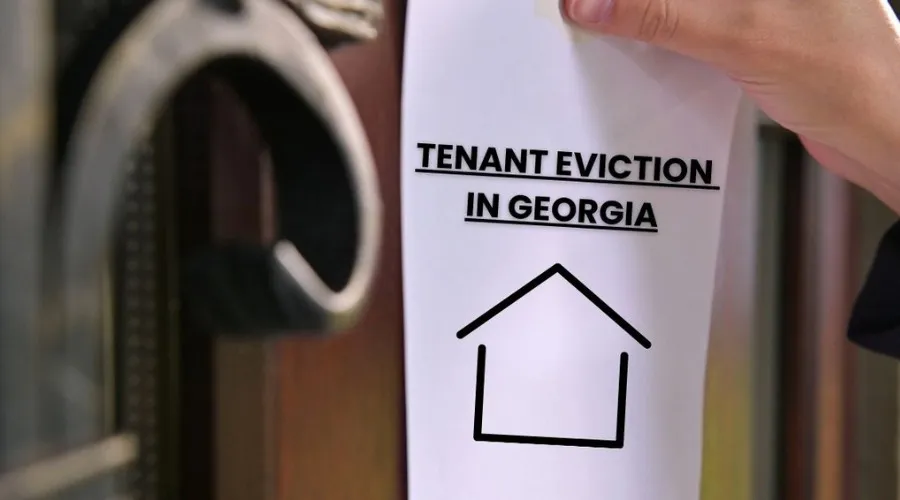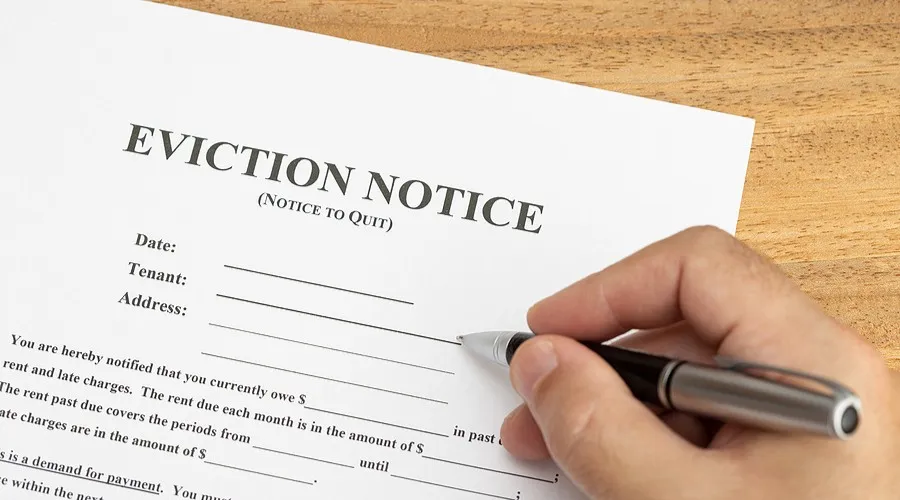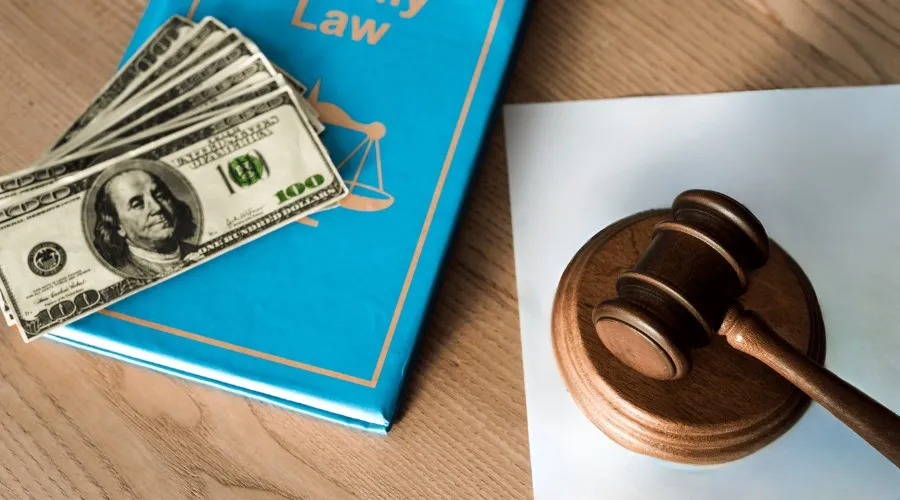The eviction process in Georgia has changed significantly under the 2025 legal updates. Landlords must now follow stricter notice and court procedures. Tenants also gain more protection and time before removal. Want to stay protected and proactive? LeaseRunner helps you manage rentals with confidence—backed by tools and legal know-how you can trust.
Recent Legal Updates for 2025 Georgia Eviction Laws
Recent changes in Georgia law are reshaping the rental landscape for both tenants and landlords. These updates introduce several key protections that impact the eviction process, security deposits, and housing standards. Here's what you need to know:
Safe at Home Act (HB 404)
Effective July 1, 2024, HB 404 strengthens tenant protections by improving rental housing conditions, reducing unfair evictions, and setting limits on security deposits. It marks a major step forward in securing renters' rights across Georgia. If you’re creating a new lease post-HB 404, be sure to use a compliant lease agreement template to reflect these changes.
3-day written notice
Landlords must now provide a 3-business-day written notice (sometimes called a “right to cure”) before filing for eviction due to nonpayment or lease termination. During this time, tenants can pay overdue rent or move out. For other lease violations, only a written notice is required with no set time frame.
Security deposit cap
Security deposits are capped at no more than two months' rent, including pet fees or prepaid rent. Landlords must document existing property damage and keep deposits in a separate escrow account or post a bond. For disputes, clear records of property condition, especially around normal wear and tear, can help protect both parties.
Habitability standards
Rental units must now meet basic habitability standards, including working plumbing, heating, electricity, and cooling (e.g., air conditioning in hot climates). Tenants can take legal action if landlords fail to make necessary repairs. Although “habitability” isn’t clearly defined, courts may use local codes as a reference. Lawmakers plan to clarify these standards in 2025.
For a full overview of state-specific landlord-tenant laws, visit Georgia Rental Law Summary on LeaseRunner.
Valid Reasons for Eviction in Georgia (2025)
When tenants fail to follow the rules set out in their lease, it can lead to legal consequences. Below are some of the most common lease violations that may result in eviction under Georgia law.
Failure to Pay Rent
In Georgia, tenants are typically considered late on rent the day after it's due—unless a grace period is outlined in the lease. Landlords are required to deliver a 3-Day Notice to Quit for nonpayment, giving tenants three business days to either settle the overdue rent or vacate the property. If no payment is made within this timeframe, the landlord can file for eviction through the court system.
Legal Reference: Georgia Code § 44-7-50
Lease violations
Both landlords and tenants are legally bound to follow the lease agreement. When tenants violate their terms, landlords have the right to take action. Some typical lease violations include:
- Causing damage to the rental property
- Keeping pets without permission
- Creating disturbances or excessive noise
- Smoking where it’s prohibited
- Committing crimes on the premises
- Overstaying after the lease has expired
Preventing lease violations starts with effective tenant screening. LeaseRunner’s eviction check service can help screen for risky tenants and reduce your legal exposure.
Read more: Georgia Squatter Rights: Adverse Possession & Legal Protections (2025 Guide)
Illegal activity on premises
When a lease ends, landlords are not obligated to renew it. For tenants on a month-to-month rental agreement, a 60-Day Notice to Vacate is required. However, if a fixed-term lease ends and isn’t renewed, no additional notice is necessary for eviction based on lease expiration.
Legal Reference: Georgia Code § 44-7-7

Non-renewal after lease expiration
Illegal actions such as drug use, theft, or violent behavior on the property can lead to immediate eviction. Georgia law allows landlords to take swift legal action to remove tenants involved in criminal activity to protect the safety of other residents and the community.
Unlawful detainers
If a tenant remains on the property after their lease has ended without the landlord’s permission, they’re considered an unlawful detainer. This status gives the landlord the right to begin eviction proceedings, even if rent was previously paid on time.
Property damage beyond normal wear and tear
While general wear and tear is expected, excessive damage caused by neglect or abuse of the property, such as broken appliances, destroyed walls, or water damage, can justify eviction. Documentation of damages and repair estimates can support the landlord’s legal claim.
No-fault evictions in Georgia
In some cases, landlords may initiate a “no-fault” eviction, such as deciding to renovate, sell the property, or move in themselves. Although the tenant hasn’t violated the lease, proper notice is still required, usually aligning with the lease type (e.g., 60 days for month-to-month rentals).

Serving an Eviction Notice in Georgia: A Complete Guide
Notice types in Georgia
In Georgia, the type of eviction notice depends on the reason for ending the tenancy and the type of rental agreement in place.
For unpaid rent, landlords must issue a 3-Day Notice to Quit, as required by the Safe at Home Act (HB 404), effective July 1, 2024. This notice gives tenants three business days to either pay the past-due rent or move out before the landlord can file for eviction.
For at-will tenancies—where there is no written lease—landlords are required to provide a 60-day Notice to Terminate Tenancy under O.C.G.A. § 44-7-7. In cases of lease violations like property damage, a written notice is still necessary, but the required timeframe may vary depending on the lease terms or local regulations.
Read more: Georgia Landlord-Tenant Law: Repairs & Maintenance Responsibilities
Notice content requirements
To be legally valid, every eviction notice in Georgia must contain specific details.
For a 3-Day Notice to Quit, the document must clearly state:
- The exact amount of unpaid rent,
- The payment deadline (three business days from the date of delivery), and
- A statement that the landlord will pursue eviction if the rent isn't paid.
It must also include the landlord’s name, contact details, and the full address of the rental property.
In the case of a 30-Day Notice for at-will tenants, the notice must clearly state:
- The intent to terminate the tenancy,
- The exact move-out date (30 days after the notice is delivered),
- The property address.
All notices must be written, dated, and signed by the landlord or their representative. If a notice is vague or missing key information, it may be thrown out by the court, in line with O.C.G.A. § 44-7-50 and HB 404.
Delivery methods
Georgia law allows landlords to serve eviction notices using three main delivery methods:
- Hand Delivery: Personally delivering the notice to the tenant is the fastest way to ensure they receive it. It provides solid proof of delivery, especially if witnessed. However, if the tenant isn’t home or refuses to accept the notice, another method may be needed.
- Posting on the Property: The notice can be securely posted in a visible spot, such as on the tenant’s door, in a sealed envelope—this is allowed under HB 404.
- Certified Mail: Sending the notice by certified mail offers written proof of mailing and receipt, assuming the tenant signs for it. It’s a safer legal route but slower and may be ineffective if the tenant refuses to accept the mail.
Legal Considerations Before Moving Forward
Before delivering any eviction notice, landlords must carefully follow Georgia’s legal requirements to avoid delays, court dismissals, or tenant lawsuits:
- Verify Lease Violations: Make sure the tenant's actions (e.g., not paying rent, violating terms) breach the rental agreement and state law.
- Follow Proper Notice Periods: Use the correct notice type and timeline—3 days for unpaid rent or 30 days for at-will tenancies—as outlined in HB 404 and O.C.G.A. § 44-7-7.
- Ensure the Property is Habitable: Under HB 404, landlords must maintain minimum living standards (working utilities, structural safety, etc.). If the rental unit is unsafe or unlivable, tenants may counter-sue or delay eviction.
- Avoid Self-Help Evictions: Landlords are strictly prohibited from actions like changing locks or cutting off utilities without a court order. Doing so could result in legal penalties (O.C.G.A. § 44-7-14.1).
- Check Local Rules: Some counties or cities may have additional notice or procedural requirements.
- Document Everything: Keep copies of all notices, delivery attempts, and tenant communications. Proper documentation is crucial if the case goes to court.
Need more legal clarity? Explore LeaseRunner’s Landlord-Tenant Law Hub for essential legal references and tools.
Eviction Process in Georgia: Step-by-Step Guide (2025)
If you're a landlord dealing with a difficult tenant who refuses to comply with the lease, it's essential to understand the legal eviction process in Georgia. This guide walks you through 7 steps of the eviction process to ensure your actions are within the law and your rights are protected.
- Step 1 – Serve Proper Eviction Notice
- Step 2 – File Dispossessory Affidavit
- Step 3 – Serve Summons & Affidavit
- Step 4 – Wait for Tenant Response
- Step 5 – Attend Court Hearing
- Step 6 – Obtain Writ of Possession
- Step 7 – Regain Possession
Step 1 – Serve Proper Eviction Notice
To legally begin the eviction process in Georgia, landlords must first issue the correct type of notice depending on the situation, for example:
- 3-Day Notice to Quit – For tenants behind on rent
- 3-Day Notice to Comply or Vacate – For violations of lease terms
- 60-Day Notice to Vacate – When ending a month-to-month lease without renewal
The notice should be clearly written and align with Georgia’s landlord-tenant law to avoid delays in the eviction process.

Step 2 – File Dispossessory Affidavit
If the tenant fails to act on the notice, landlords can proceed by filing an official eviction case (also called a dispossessory action) with the county magistrate or justice court. This includes a signed statement of the eviction reason and a filing fee (usually $60–$75).
Step 3 – Serve Summons & Affidavit
Once the case is filed, a sheriff or court-approved process server will deliver legal documents to the tenant using one of the following methods:
- Personal Delivery – Handed directly to the tenant
- Substitute Service – Given to another adult living at the property
- Posting and Mailing – Left at the property and also mailed to the tenant’s last known address
Step 4 – Wait for Tenant Response
After being served, the tenant has 7 days to respond by filing an answer with the court. This can be done either in writing—presenting their defense against the eviction—or orally by speaking directly with the court clerk at the courthouse. If the tenant does not respond within the 7-day window, the court may issue a default judgment in favor of the landlord.
Step 5 – Attend Court Hearing
If the tenant contests the eviction, a court date will be set. The landlord should prepare evidence such as:
- A signed lease agreement
- Documentation of lease violations (photos, written warnings, messages)
- Payment records or rent ledger (if the issue is nonpayment)
Step 6 – Obtain Writ of Possession
If the judge sides with the landlord, they’ll issue a Writ of Possession at least 7 days after the ruling. This court order gives the landlord the legal right to regain control of the rental property.
Step 7 – Regain Possession
Once the writ is issued, the tenant has 7 days to leave the property. If they don’t, a sheriff will supervise the physical eviction. Georgia law does not require landlords to store or return items the tenant leaves behind.
Read more: Eviction Laws in Georgia: Comprehensive Guide for Landlords and Tenants
Eviction Timeline and Costs in Georgia (2025)
Knowing how long the eviction process takes and how much it costs can help landlords plan ahead and stay compliant with Georgia law. The table below breaks down each step of the eviction process, including updated timelines and estimated expenses for 2025.
Documentation and Evidence as Georgia Landlords
Keeping thorough documentation is critical for Georgia landlords, especially when facing eviction processes or defending against tenant claims. With updates like the Safe at Home Act (HB 404) effective July 1, 2024, and legal requirements under O.C.G.A. § 44-7-50, organized record-keeping isn’t just smart - it’s legally essential.
Best Practices for Record Keeping
To reduce legal risk and support your case in court, follow these record-keeping practices:
- Centralize Your Files: Store all leases, notices, receipts, and ledgers in one place—digitally (like Google Drive or Buildium) or in a labeled folder system. Easy access matters when you're on a deadline.
- Log Every Interaction: Keep track of emails, texts, letters, and calls with tenants. For verbal convos, jot down the date, time, and what was said. Always save proof of any notice you send.
- Use a Lease Checklist: Make sure every lease is signed and covers key terms—rent, deposits, pets, maintenance. Review it before disputes arise, not after.
- Follow Georgia’s Retention Rules: Landlords should keep all relevant documents for at least three years. In Georgia, the statute of limitations varies by case type: 6 years for written contracts like lease agreements (O.C.G.A. § 9-3-24), 4 years for oral agreements (O.C.G.A. § 9-3-26), and 4 years for recovering personal property left behind after eviction (O.C.G.A. § 9-3-32).
Evidence to Support Nonpayment Claims
For eviction due to unpaid rent, gather the following evidence:
- The signed lease: This confirms the rent terms, due dates, and any late fees agreed upon. It's your foundational document.
- A clear payment record: Show exactly what’s been paid or missed. Use a ledger backed by bank statements or payment apps like Zelle or PayPal.
- 3-Day Notice to Quit: Include the full amount owed, deadline, and tenant info. Don’t forget proof that it was properly delivered (like certified mail or photos).
- All communication attempts: Save texts, emails, or letters showing you tried to resolve the issue—these show reasonableness in court.

Evidence for Lease Violations
If the tenant violates the lease, this documentation will support your claim:
- Lease Agreement with Highlighted Clause: Point out exactly which rule was broken—like unauthorized pets or property damage-so it's crystal clear where the tenant went wrong.
- Violation Notice + Proof of Delivery: Make sure the notice includes what happened, what the tenant needed to fix, and how you delivered it (e.g. certified mail or posting on door).
- Photos or Videos with Timestamps: Visual proof is powerful—especially for damages, illegal activities, or unauthorized guests.
Written Witness or Staff Statements: Get signed notes from anyone who saw the violation, and be ready to share contact info with the court if needed.
Property Condition Documentation
Protect yourself from habitability claims or deposit disputes with strong documentation:
- Do a documented walkthrough: Use move-in/move-out checklists with your tenant. Note existing damage, take photos, and get both signatures—this is your first line of defense in deposit disputes.
- Capture visual evidence: Take clear photos or videos of each room, appliances, and any issues—both at move-in and move-out. It’s hard to argue with timestamped proof.
- Keep repair records: Save all repair requests, invoices, and before/after photos. This shows you’ve responded reasonably and helps comply with Georgia’s HB 404 habitability standards.
- Be transparent with deposits: Log how you handle the security deposit. Use an escrow account, and always provide itemized deductions with receipts and photo evidence if anything is withheld.
Landlord Mistakes to Avoid in Georgia Eviction Cases
When pursuing an eviction in Georgia, landlords must avoid these three common mistakes that could lead to delays, dismissed cases, or even legal backlash:
Self-eviction
Changing the locks, shutting off utilities, or removing a tenant’s belongings without a court order is illegal in Georgia. Tenants can sue for triple damages and court costs.
Improper notice or service
Landlords are required to provide a written eviction notice at least 3 days in advance. If the notice is not properly delivered or documented, the court may dismiss the case.
Ignoring tenant protections
Evictions based on race, gender, disability, or in retaliation for complaints (e.g., about unsafe conditions) are strictly prohibited under Fair Housing laws and could result in federal lawsuits or heavy penalties.
Bottom Line
Understanding Georgia’s eviction laws is key to handling the process legally and fairly. By following the right legal steps and staying current on state regulations, landlords can protect their property while respecting tenant rights.
Whether you're a tenant needing help with repairs or a landlord filing for eviction, Georgia Legal Aid offers free resources like notice templates, housing guides, and legal advice for low-income individuals. They help both sides understand rights under HB 404 and O.C.G.A. codes. For complex disputes, like discrimination or retaliation, consult a qualified landlord-tenant attorney in Georgia.
FAQs
Q1. Can you remove someone from your house in Georgia?
Yes. If they didn’t have your permission or a lease, Georgia's intruder laws apply. This allows you to legally remove them without going through a formal eviction, but you must follow proper legal steps.
Q2. Can a landlord evict you immediately in Georgia?
No. Landlords must give verbal or written notice to vacate. While Georgia law doesn’t set a notice period, it must be reasonable. Immediate eviction without notice is not legal.
Q3. What can tenants do if evicted for not paying rent?
Tenants have 7 days to pay all rent and court fees to stop the eviction. They must also respond to the summons within 7 days and can request a hearing or appeal the ruling.



